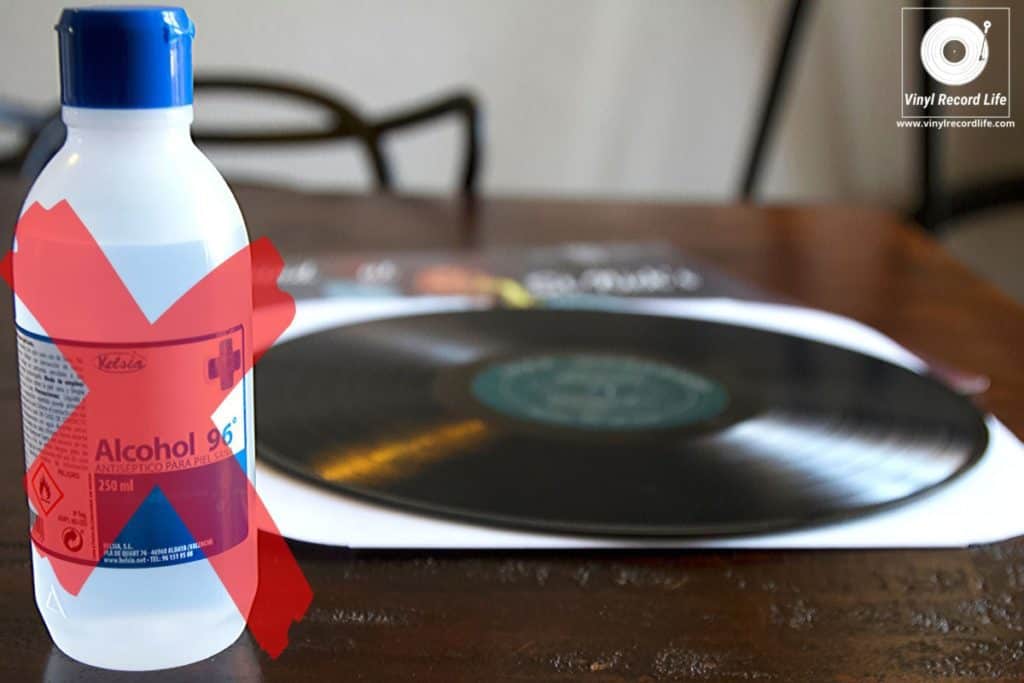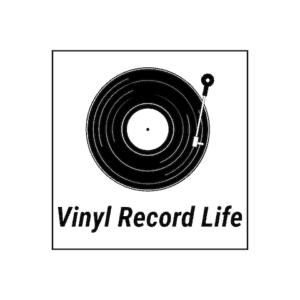
When it comes to cleaning your vinyl records, you want to get it right. I know I do! The fear of damaging your precious collection is a real one for many vinyl enthusiasts, and there is an overwhelming amount of conflicting information on the internet about whether alcohol is a safe solution to use.
Cleaning your vinyl records with pure alcohol is not safe and you should never use undiluted alcohol to clean them. Some commercially available record cleaning solutions do contain a small concentration of isopropyl alcohol, but this is mixed with other ingredients.
Caution should always be used when considering the use of alcohol to clean vinyl records, and it is always better to err on the side of caution when cleaning discs by avoiding the use of alcohol altogether.
However, in some instances individuals at home and brands making record-cleaning products for sale do use alcohol as part of the content of their solution, to produce a diluted and specialized mix.
Can You Clean Vinyl Records with Alcohol?
The short answer to this question is yes, you can use alcohol to clean vinyl records, but there are two key caveats to this answer.
The first is that the type of alcohol to be used needs to be carefully selected and diluted.
The second caveat is that there is no guarantee that you will not cause damage to your vinyl record when using alcohol, so it is not possible to confidently say that it is safe to clean your records in this manner.
Except in emergency situations, one should avoid cleaning fluids containing alcohol for all recordings. In any case, alcohol should not be used on shellac discs, since various kinds of alcohol dissolve shellac. Although alcohol does not dissolve polyvinyl chloride, the primary ingredient in vinyl discs, some experts caution against its use on LPs because of the threat of the loss of plasticizer or stabilizer. Also, because of the wide variety of materials used in their manufacture and the possibility of a breakdown of the bond between their surface and base, alcohol should not be used.
Gerald D. Gibson, Conserving and Preserving Materials in Nonbook Formats
The general consensus amongst record collectors, and my own personal opinion, is that extreme caution should always be exercised around the use of alcohol as a cleaning agent for vinyl records, and avoided completely if at all possible.
How Vinyl Records React to Alcohol
As outlined by Gibson previously, nearly all records are now made from a base of polyvinyl chloride (PVC), which is a robust material that has strong resistant properties to solvents. As such, the PVC which forms the base material of the record is not especially at risk when exposed to alcohol.
The risk, or reaction, can be perceived to come from the additives which are in the PVC. These plasticizers, stabilizers and extenders help to give the vinyl some flexibility, and are bonded into the solid material.
Small reactions of these elements of the record to alcohol are what can affect the integrity of the disc, and the risk of an adverse effect on their bonding to the surface and base of the PVC is what makes alcohol a less than desirable cleaning solution for vinyl records.
In cleaning solutions that do contain isopropyl alcohol, it is often in such a small quantity that the exposure of the vinyl to the product would have to be for such a prolonged period before any degradation of the record could occur.
Isopropyl alcohol is widely accepted as the least aggressive form of alcohol for the purpose of cleaning records. However, it is worth restating that the use of any form of alcohol is best avoided, and that isopropyl when used is always used in very small amounts, as it is also considered abrasive when not carefully controlled.
Types of Alcohol and How They Can Affect Vinyl
There are a few different types of alcohol which have either been tried out, or proposed, as possible cleaning solutions for vinyl records.
- Pure alcohol does an excellent job of stripping away all the kinds of debris, dirt and dust which build up in record grooves, but it is the side effects it has which make it so damaging. As well as removing dirt, pure alcohol also strips a vinyl record’s protective coating which guards the inside of the grooves. Once that coating has been damaged or removed, the recording can lose its warmth and sound quality. It should be avoided at all costs.
- Methyl alcohol, or methanol, is another alcohol that you may see referred to online as a potential cleaning solution. This too should be avoided, as it is toxic and will cause damage to any discs it comes into contact with.
- Ethyl alcohol, or ethanol, has been used in a denatured format to clean records but can also be corrosive if not diluted correctly. Again, avoid!
- Isopropyl alcohol, as previously mentioned, is the most common and frequently used alcohol in vinyl record cleaning solutions, but always in small, diluted quantities.
Alcohol Content in Ready-Made Record Cleaning Products: An Indicator as to the Safety of Using Alcohol
By far the easiest approach, especially if you lack the confidence and experience to try and make your own cleaning solution, is to buy a ready-made vinyl record cleaning solution. It is the more expensive option, but the cost is not exorbitant and it provides peace of mind.
Some enthusiasts swear off ready-to-buy solutions as they prefer to mix their own according to years of experience and their own tried and tested mix. I respect that level of dedication and knowledge, and of course I respect everyone’s own individual approach.
Personally, I prefer to avoid the use of any form of alcohol as much as I possibly can, and have found that some ready-to-buy solutions do a great job while at the same time leaving me reassured that I haven’t exposed my records to any unnecessary risk of damage.
I also believe that a good indicator of the safety of the use of alcohol to clean your vinyl records is whether a brand (that invests R&D into the most efficient and safest methods to clean records) does or does not include alcohol in its specialist cleaning solution.
Interestingly, and to underline the industry caution around the use of alcohol in the cleaning of discs, many products that are available to buy ready-made do not include alcohol.
Here is a useful table of some of the best known and reputable products, and whether they use any form of alcohol:
For me, the fact that the majority of these brands don’t state the use of alcohol in their ingredients is a clear indicator of the general industry consensus on the safety of the use of alcohol in cleaning vinyl records.
Cleaning Records: Related Questions
What else should I avoid using to clean my vinyl record collection? Household cleaning products such as window cleaner or dish detergent, vinegar and regular tap water should all never be used to clean your records. Yes, some people do try to use these!
How can I care for my records on a more low maintenance basis? Removing dust and static before each play of your vinyl record is less effort than cleaning with any kind of a fluid solution, and will help to keep it in good condition. Of course it’ll also improve your listening experience. However, a proper clean on a regular basis is important if you want to preserve the quality and lifespan of your vinyl!
Cleaning your brand new records before their first play is also a good practice to get into.





